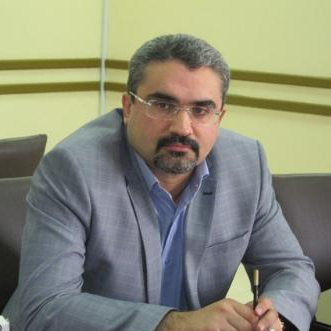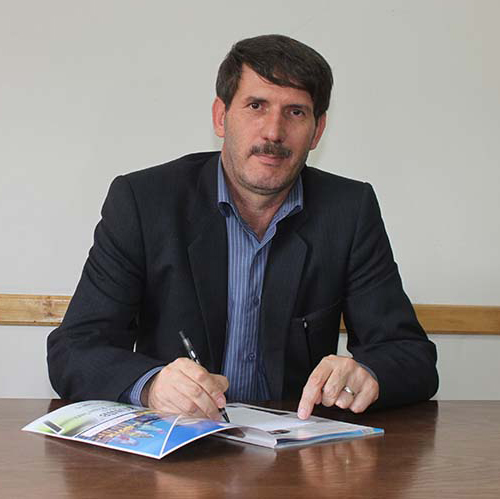اثربخشی آموزش مهارتهای اساسی زندگی بر سرمایه روانشناختی، تنظیم هیجانی و کیفیت زندگی در زنان دارای همسر زندانی
کلمات کلیدی:
سرمایه روانشناختی, کیفیت زندگی, آموزش مهارتهای اساسی زندگی, تنظیم هیجانی, زنانچکیده
زمینه و هدف: پژوهشهای اندکی بر روی زنان دارای همسر زندانی یا سرپرست خانوار انجامشده و لازم است پژوهشهایی با هدف بهبود سرمایه روانشناختی، تنظیم هیجانی و کیفیت زندگی آنان انجام شود. در نتیجه، هدف این پژوهش تعیین اثربخشی آموزش مهارتهای اساسی زندگی بر سرمایه روانشناختی، تنظیم هیجانی و کیفیت زندگی در زنان دارای همسر زندانی بود.
روش و مواد: مطالعه حاضر نیمهتجربی با طرح پیشآزمون و پسآزمون با گروه کنترل بود. جامعه این مطالعه همه زنان دارای همسر زندانی شهر تهران بودند. حجم نمونه برای هر گروه 15 نفر در نظر گرفته شد و بر همین اساس 30 نفر با روش نمونهگیری در دسترس انتخاب و به روش تصادفی در دو گروه مساوی جایگزین شدند. گروه آزمایش 10 جلسه 120 دقیقهای تحت آموزش مهارتهای اساسی زندگی (سازمان بهداشت جهانی، 1998) قرار گرفت و گروه کنترل در لیست انتظار برای آموزش ماند. ابزارهای پژوهش شامل پرسشنامههای سرمایههای روانشناختی (لوتانز و همکاران، 2007)، دشواری در تنظیم هیجانی (گراتز و روئمر، 2004) و فرم کوتاه کیفیت زندگی (سازمان بهداشت جهانی، 1996) بودند. دادههای این مطالعه با روش تحلیل کوواریانس چندمتغیری در نرمافزار SPSS-26 تحلیل شدند.
یافتهها: یافتههای این پژوهش نشان داد که آموزش مهارتهای اساسی زندگی باعث افزایش معنادار سرمایه روانشناختی و کیفیت زندگی و کاهش معنادار دشواری در تنظیم هیجانی در زنان دارای همسر زندانی شد (001/0P<).
نتیجهگیری: نتایج این پژوهش نشان داد که آموزش مهارتهای اساسی زندگی نقش موثری در افزایش سرمایه روانشناختی و کیفیت زندگی و کاهش دشواری در تنظیم هیجانی در زنان دارای همسر زندانی داشت. بنابراین، برای بهبود ویژگیهای روانشناختی در گروههای آسیبپذیر از جمله زنان دارای همسر زندانی میتوان از روش آموزش مهارتهای اساسی زندگی استفاده کرد.
دانلودها
مراجع
Abbasi Shovaz, F., Zareei Mahmoodabadi, H., & Salehzadeh, M. (2022). Effectiveness of life skills training based on self-care on mental health and quality of life of married Afghan women in Iran. BMC Women's Health, 22(296), 1-6. https://doi.org/10.1186/s12905-022-01875-y
Ghadiri Niari, M., & Moshkbid Haghighi, M. (2023). The effectiveness of life skills training on psychological helplessness and improving the psychological capital of patients with diabetes in Gilan province. Journal of Psychology New Ideas, 15(19), 1-17. https://jnip.ir/article-1-850-en.html
Heidari, F., & Mottaghi, R. (2023). The effectiveness of life skills training on cognitive flexibility and quality of life in elderly people with diabetes mellitus type-2: A quasi-experimental study. Journal of Rafsanjan University of Medical Sciences, 22(4), 367-384. http://dx.doi.org/10.61186/jrums.22.4.367
Khodaparast, S., Abdi, H., Esmaeili, H., & Bakhshalipour, V. (2022). The effectiveness of life skills training on emotion regulation strategies and sports self-efficacy of children / adolescent athletes. Research on Educational Sport, 10(26), 221-242. https://doi.org/10.22089/res.2021.10179.2065
Lee, M. J., Wu, W. C., Chang, H. C., Chen, H. J., Lin, W. S., Feng, J. Y., & Lee, T. S. H. (2020). Effectiveness of a school-based life skills program on emotional regulation and depression among elementary school students: A randomized study. Children and Youth Services Review, 118, 105464. https://doi.org/10.1016/j.childyouth.2020.105464
Naghashzadeh, E., Khalatbari, J., Hosseini Alamdani, S. A., Asadzadeh Dehrayi, H., & MohammadiAria, A. (2019). The effectiveness of life skills training based on Jay McGraw's approach to self-expression emotion regulation in adolescent. Medical Journal of Mashhad University of Medical Sciences, 62(5), 456-464. https://doi.org/10.22038/mjms.2019.15278
Rabani, Z. (2019). The effectiveness of life skills training on individual-social adjustment and psychological capital in high school students. Iranian Journal of Educational Sociology, 2(1), 54-63. http://dx.doi.org/10.29252/ijes.2.1.54
Sadeghi, A., Esmaili, A., & Moghadam, A. (2019). The effectiveness of life skills training on quality of life among drug quitting women. Research on Addiction, 13(53), 139-156. https://etiadpajohi.ir/article-1-1830-en.html
Vahidian, Z., Nooruan, K., Vahidian, E., & Rouin Tan, S. (2020). Teaching life skills on psychological well-being and psychological capital in nurses of Shahid Beheshti hospital of Yasuj. Armaghan-e-Danesh, 25(2), 301-312. http://dx.doi.org/10.52547/armaghanj.25.2.1.301
Bakhtiari, M., & Pourdel, M. (2024). The effectiveness of cognitive-behavioral therapy on distress tolerance and resilience in women with substance-dependent incarcerated spouses. Research on Addiction, 17(70), 267-288. http://dx.doi.org/10.61186/etiadpajohi.17.70.267
Brausch, A. M., Kalgren, T., & Littlefield, A. (2025). Onset and offset of nonsuicidal self-injury prospectively associates with emotion regulation and suicide ideation in adolescents. Journal of Affective Disorders, 373, 412-419. https://doi.org/10.1016/j.jad.2025.01.004
Carter, J. W., & Youssef-Morgan, C. (2022). Psychological capital development effectiveness of face-to-face, online, and micro-learning interventions. Educational Information Technologies, 27(5), 6553-6575. https://doi.org/10.1007/s10639-021-10824-5
Castro, R. P., Haug, S., Wenger, A., & Schaub, M. P. (2022). Longer-term efficacy of a digital life-skills training for substance use prevention. American Journal of Preventive Medicine, 63(6), 944-953. https://doi.org/10.1016/j.amepre.2022.06.017
Cheung, J. C. W., Ni, M., Tam, A. Y. C., Chan, T. T. C., Cheung, A. K. Y., Tsang, O. Y. H., & et al. (2022). Virtual reality based multiple life skill training for intellectual disability: A multicenter randomized controlled trial. Engineered Regeneration, 3(2), 121-130. https://doi.org/10.1016/j.engreg.2022.03.003
Forrest, L. N., & Grilo, C. M. (2022). Change in eating-disorder psychopathology network structure in patients with binge-eating disorder: Findings from treatment trial with 12-month follow-up. Journal of Consulting and Clinical Psychology, 90(6), 491-502. https://doi.org/10.1037/ccp0000732
Ghanavati, M., Talebzadeh Shoushtari, M., Safarzadeh, S., Bavi, S., & Bakhtiarpour, S. (2024). Comparison the effectiveness of cognitive analytical therapy and emotional schema therapy on cognitive emotion regulation and worry of patients with generalized anxiety disorder. Journal of Psychological Dynamics in Mood Disorders, 3(4), 114-128. https://maherpub.com/pdmd/article/view/237
Gratz, K. L., & Roemer, L. (2004). Multidimensional assessment of emotion regulation and dysregulation: Development, factor structure, and initial validation of the difficulties in emotion regulation scale. Journal of Psychopathology and Behavioral Assessment, 26(1), 41-54. https://doi.org/10.1023/B:JOBA.0000007455.08539.94
Habibovic, M., Leissner, P., Nyklicek, I., Widdershoven, J., & Olsson, E. (2025). Association between psychological inflexibility, distress and health-related quality of life in people with cardiovascular disease. General Hospital Psychiatry, 92, 95-99. https://doi.org/10.1016/j.genhosppsych.2024.12.018
Hosseini, S. A., Kalantari, A., & Rafienia, P. (2021). The predictive role of schema modes and difficulties in emotion regulation in Corona disease anxiety. Journal of Clinical Psychology, 13(50), 181-190. https://doi.org/10.22075/jcp.2021.22943.2113
Huang, C. C., Chen, Y., Greene, L., Cheung, S., & Wei, Y. (2019). Resilience and emotional and behavioral problems of adolescents in China: Effects of a short-term and intensive mindfulness and life skills training. Children and Youth Services Review, 100, 291-297. https://doi.org/10.1016/j.childyouth.2019.03.015
Khoshaim, L. S. (2024). Analysing the psychological capital influence on academic performance in an e-learning environment. Journal of Innovative Digital Transformation, 1(2), 101-117. https://doi.org/10.1108/JIDT-10-2023-0031
Kougious (Hons), R., Lung, T., Humburg, P., Delbaere, K., & Van Schooten, K. S. (2024). The relationship between pain, quality of life and physical activity in older community living Australians. Geriatric Nursing, 59, 306-311. https://doi.org/10.1016/j.gerinurse.2024.07.021
Ladas, A. I., Gravalas, T., Katsoridou, C., & Frantzidis, C. A. (2024). Harmony in the brain: A narrative review on the shared neural substrates of emotion regulation and creativity. Brain Organoid and Systems Neuroscience Journal, 2, 81-91. https://doi.org/10.1016/j.bosn.2024.10.002
Lan, L., L., Liu, W., Liu, C., Wang, H., Wang, M., Abbey, C., & et al. (2024). Effects of mindfulness and life-skills training on emotion regulation and anxiety symptoms in Chinese migrant children: A randomized controlled trial. Journal of Adolescent Health, 75(3), 404-415. https://doi.org/10.1016/j.jadohealth.2024.05.024
Luthans, F., Avolio, B. J., Avey, J. B., & Norman, S. M. (2007). Positive psychological capital: Measurement and relationship with performance and satisfaction. Personnel Psychology, 60(3), 541-572. https://psycnet.apa.org/doi/10.1111/j.1744-6570.2007.00083.x
Matthews, M., Webb, T. L., Shafir, R., Snow, M., & Sheppes, G. (2021). Identifying the determinants of emotion regulation choice: a systematic review with meta-analysis. Cognition & Emotion, 35(6), 1056-1084. https://doi.org/10.1080/02699931.2021.1945538
McMullen, J. D., & McMullen, N. (2018). Evaluation of a teacher-led, life-skills intervention for secondary school students in Uganda. Social Science & Medicine, 217, 10-17. https://doi.org/10.1016/j.socscimed.2018.09.041
Nasiri Karbasdehi, Z., Fakhri, M. K., & Ghanadzadegan, H. A. (2023). The effectiveness of mindfulness training on distress tolerance, resilience and emotion regulation in students with symptoms of generalized anxiety disorder. Sociology of Education, 9(1), 413-423. https://doi.org/10.22034/ijes.2023.2014010.1484
Neves, E. T., Da Silva, J. H., Urbanetto, J. D. S., Buboltz, F. L., Kegler, J. J., Ribeiro, C. F., & et al. (2023). Quality of life in the voice of children who depend on health technologies: Mixed methods study. Journal of Pediatric Nursing, 73, 83-92. https://doi.org/10.1016/j.pedn.2023.07.017
Plessis, C., & Altintas, E. (2024). We can be heroes at work: the relationship between psychological capital, motivation and well-being during the great resignation. Journal of Organizational Change Management, 37(3), 581-602. https://doi.org/10.1108/JOCM-06-2023-0240
Rassafiani, M., Sahaf, R., Shams, A., Vameghi, R., Zareian, H., & Akrami, R. (2020). Validity and reliability of the Persian version of the World Health Organization quality of life questionnaire - The older adults edition. Iranian Journal of Ageing, 15(1), 28-41. https://doi.org/10.32598/sija.2020.3.110
Taajobi, M., Mohammadi, P., & Ahmadi, M. (2023). Investigating the relationship between talent management and organizational socialization with psychological capital (Case study: Saqez primary school teachers). Sociology of Education, 9(1), 181-190. https://doi.org/10.22034/ijes.2021.541983.1184
World Health Organization, Division of Mental Health. (1996). WHOQOL-BREF: Introduction, administration, scoring and generic version of the assessment: Field trial version. World Health Organization. https://iris.who.int/handle/10665/63529
World Health Organization. (1998). The world health report: 1998: Life in the 21st century: A vision for all: Report of the director-general. World Health Organization. https://iris.who.int/handle/10665/42065
Yildirim, M., Cagis, Z. G., & Williams, G. (2023). Fear of COVID-19, intolerance of uncertainty, psychological capital, and positive future expectations: Tests of mediating relationships with healthcare workers. Archives of Psychiatric Nursing, 45, 158-163. https://doi.org/10.1016/j.apnu.2023.06.016
Zangoui Dovom, M. H., Karimi Afshar, E., & Sanagoy Moharrer, Gh. (2023). The effectiveness of neuro-linguistic programming based on self-control on the mental health and psychological well-being of women with imprisoned spouses. Bi-Quarterly Journal of Policing & Social Studies of Women & Family, 11(1), 141-162. https://dor.isc.ac/dor/20.1001.1.23224274.1402.11.1.5.1
Zhang, X., Hu, B. Y., Zou, X., & Ren, L. (2020). Parent-child number application activities predict children’s math trajectories from preschool to primary school. Journal of Educational Psychology, 112(8), 1521-1531. https://doi.org/10.1037/edu0000457




























